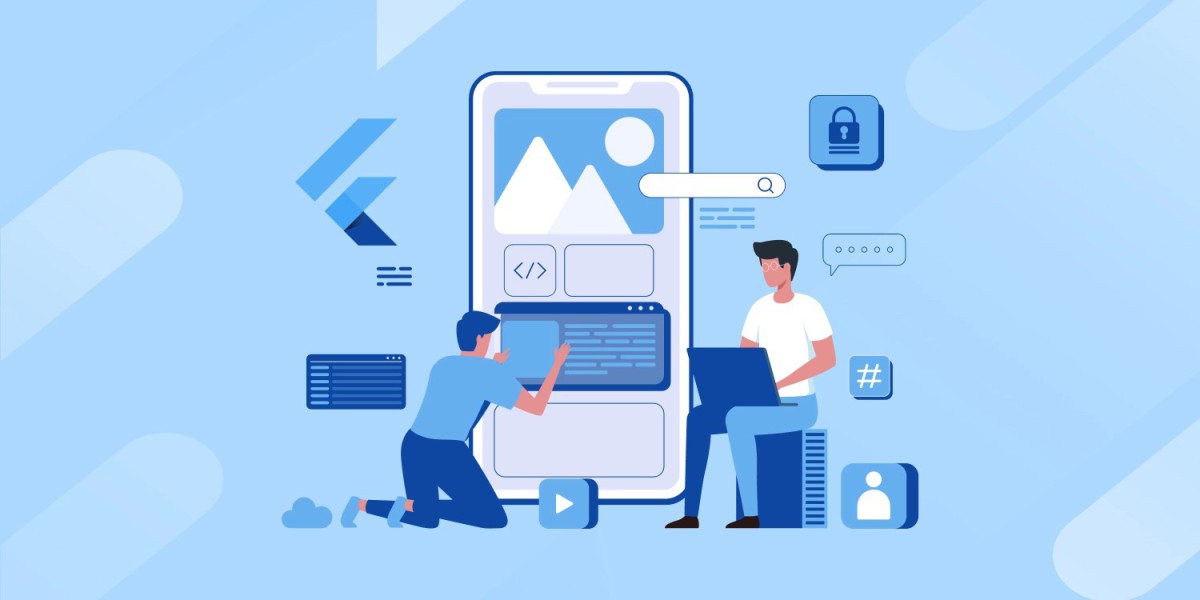In the contemporary world of rapid digital advancements, the user experience reigns supreme. Whether you're a Flutter development company or an independent developer, ensuring that your Flutter app performs smoothly is essential for retaining users and staying competitive. In this comprehensive guide, we'll explore strategies and best practices for optimizing Flutter app performance to deliver a seamless and responsive user experience.
Why Performance Optimization Matters
Performance optimization is not just a technical concern; it directly impacts your app's success. Here are a few reasons why optimizing Flutter app performance is crucial:
1. User Satisfaction
A slow and unresponsive app frustrates users, leading to high bounce rates and low engagement. On the other hand, a fast and smooth app enhances user satisfaction and encourages prolonged usage.
2. App Retention
Performance issues are a leading cause of app uninstalls. When users encounter sluggishness, crashes, or excessive battery drain, they are more likely to abandon your app in favor of a competitor's.
3. Conversion Rates
For Flutter app development companies, performance directly affects conversion rates. If your app involves e-commerce or any transactional component, a smooth experience can boost sales and conversions.
4. User Ratings and Reviews
Negative user reviews and ratings can harm your app's reputation and visibility. Excellent performance leads to positive reviews and higher app store rankings.
5. Cost Efficiency
Optimizing performance can reduce server costs, as fewer server resources are required to handle user requests efficiently. It also extends device battery life, enhancing the user experience further.
Now, let's delve into the strategies and techniques to optimize Flutter app performance.
Strategies for Optimizing Flutter App Performance
1. Profile Your App
Before making any optimizations, it's essential to identify performance bottlenecks. Use Flutter's built-in tools like the Flutter DevTools and observatory to profile your app's CPU, memory, and network usage.This will aid in identifying the regions that require enhancements.
2. Code Splitting
Divide your app's code into smaller, more manageable parts. This practice, known as code splitting, allows the app to load only the necessary code when needed, reducing the initial load time.
3. Optimize Images and Assets
Large images and assets can slow down your app. Enhance images by compressing them while preserving their quality. Utilize contemporary image formats such as WebP to achieve improved compression. Additionally, load assets lazily to minimize the initial load time.
4. Efficient State Management
Choose a suitable state management approach for your app. Flutter provides options like Provider, Bloc, and Riverpod. Proper state management can prevent unnecessary widget rebuilds and improve overall performance.
5. Lazy Loading
Implement lazy loading for widgets that are not immediately visible on the screen. This technique ensures that only the visible content is loaded, reducing memory usage and improving rendering performance.
6. Minimize Widget Rebuilds
Avoid unnecessary widget rebuilds, especially when dealing with complex UIs. Utilize the const keyword to create widgets that don't rebuild unless their properties change. Additionally, use the builder parameter in widgets like ListView.builder() to create efficient lists.
7. Network Optimization
Optimize network requests by minimizing unnecessary API calls and reducing payload sizes. Use HTTP caching and request prioritization to enhance the user experience, especially in low-network conditions.
8. Background Processing
Move resource-intensive tasks, such as image processing or data fetching, to background isolates. This prevents the main UI thread from becoming unresponsive.
9. Memory Management
Pay close attention to memory management. Use Flutter's memory profiler to identify and rectify memory leaks. Dispose of resources when they are no longer needed to prevent memory buildup.
10. Flutter Plugins
Review and optimize the third-party plugins and packages you use. Some poorly written or outdated plugins can negatively impact app performance. Ensure you're using the latest versions and consider contributing to or forking plugins to improve performance.
Testing and Benchmarking
Performance optimization is an ongoing process. Conduct routine testing of your app across different devices and network conditions to maintain reliable performance. Benchmark your app's performance against industry standards and competitors to identify areas for improvement.
The Role of a Flutter Development Company
As a Flutter development company, we understand the importance of delivering high-performance apps. Our team of experienced Flutter developers specializes in optimizing Flutter apps to provide users with a seamless experience.
Continuous Monitoring
We employ continuous monitoring and performance profiling to identify and address bottlenecks in your app. Our proactive approach ensures that your app maintains optimal performance even as it evolves.
Custom Solutions
Every app is unique, and so are its performance challenges. We tailor our optimization strategies to meet your app's specific needs, providing custom solutions that deliver the best results.
Quality Assurance
Our rigorous testing and quality assurance processes guarantee that your app meets the highest performance standards. We conduct comprehensive tests to ensure your app performs flawlessly under various conditions.
Post-Launch Support
Our commitment to your app's performance doesn't end at launch. We offer post-launch support to monitor performance, address any emerging issues, and implement updates as needed.
Conclusion
Optimizing Flutter app performance is not just a technical necessity; it's a critical aspect of delivering a superior user experience. Whether you're an independent developer or a Flutter app development company, prioritizing performance optimization ensures that your app remains competitive and user-friendly.
Investing in performance optimization is an investment in the success and longevity of your Flutter app. Users expect nothing less than a smooth, responsive, and enjoyable experience, and by following these strategies and partnering with a Flutter app development company, you can meet and exceed those expectations.


